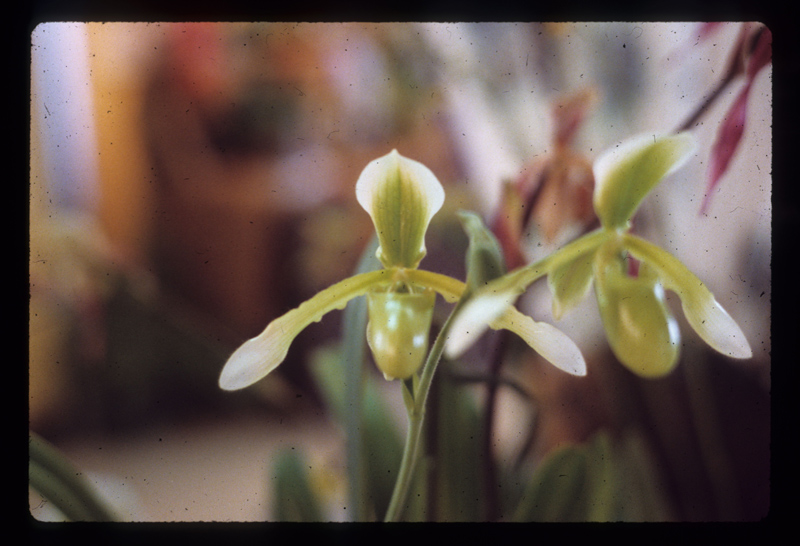Posted on Thu., Dec. 6, 2012 by
Finding a rare and endangered plant species in the wild is hard enough. What is even more difficult is spotting an albino form of that flower! By definition, albinism is the absence of any pigmentation or coloration in a person, animal, or plant. For the most part, any living thing has the capacity to become albino.
Even though albinism affects the health of plants and weakens their chances of survival, collectors everywhere desire the characteristic since it is so difficult to achieve and hard to cultivate. It may take many decades and generations to obtain an albino orchid. On top of that, when growers finally do get an albino, they have to face the challenges of keeping it alive. The interbreeding of the same species will create deficiencies within its genetic diversity, causing the flowers to become completely white. There will be no other color with the exception of green. Green is still present in the plant due to its need of chlorophyll, a green-pigmented molecule that collects sunlight for the process of photosynthesis.
The Huntington has a sizeable collection of albino orchids. When speaking specifically about Paphiopedilums or Phalaenopsis, the technical name for albinism is “album.” For example, one of our plant tags reads Paphiopedilum bellatulum var. album. The word “album” will signify that it is an albino flower. Currently in bloom in our collections are Paphiopedilum primulinum, Paphiopedilum bellatulum, Paphiopedilum fairrieanum, and Phalaenopsis violacea. One of the very first Paphiopedilums to be discovered in albino form was Paphiopedilum primulinum. When it was first collected in Sumatra, Indonesia, the albino form was collected even before the first colored specimen was discovered. That is extremely rare due to the high diversity within jungles.
Be sure to check out our albino orchids in The Rose Hills Foundation Conservatory for Botanical Science today through Dec. 14, 2012. The flowers will not be open forever, so check them out before it is too late!
Brandon Tam is The Huntington’s orchid specialist.
